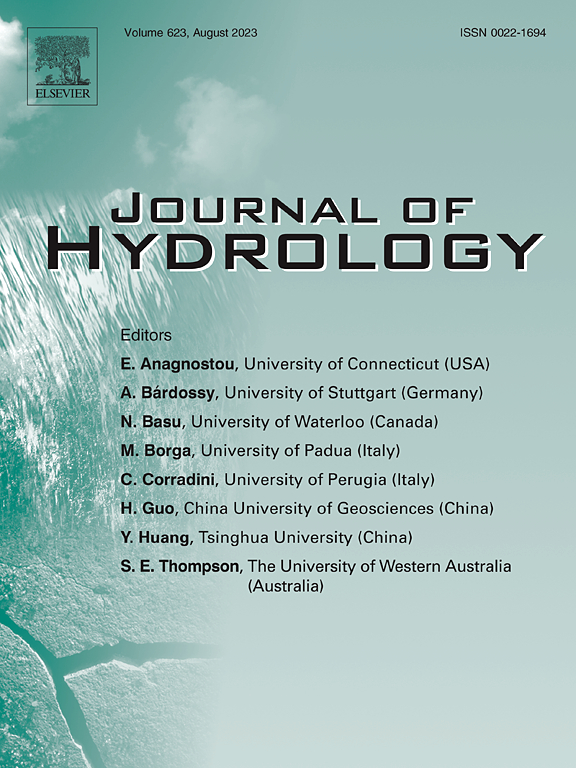A modified multi-objective grey wolf optimizer for multi-objective flood control operation of cascade reservoirs
IF 5.9
1区 地球科学
Q1 ENGINEERING, CIVIL
引用次数: 0
Abstract
The issue of reservoir flood control optimization (RFCO) is inherently intricate as it involves a large number of variables and multiple objectives. In the realm of RFCO, numerous multi-objective algorithms are prone to the dimensional disaster, often becoming ensnared in local optima and failing to provide decision-makers with diverse solutions. This paper introduces a modified multi-objective grey wolf optimizer (MMOGWO) that integrates multiple search strategy, enhancing the autonomous exploration capabilities of individual grey wolves. It addresses the weaknesses of original multi-objective grey wolf optimizer (MOGWO) in exploration and its propensity to converge to local optima. MMOGWO was evaluated on well-known multi-objective optimization benchmark functions UF8-UF10, DTLZ2 and DTLZ7. Experimental results from Wilcoxon signed-rank tests and Friedman tests demonstrate the algorithm’s strong competitiveness, as it holds an advantage in comparisons with MOGWO, non-dominated Sorting Dung Beetle Optimizer (NSDBO), multi-objective golden eagle optimizer (MOGEO), and multi-objective Manta ray foraging optimizer (MOMRFO). Subsequently, MMOGWO was applied to a flood control operation model that considers the safety of cascade reservoirs, the safety of downstream protected objects, and the ability of cascade reservoirs to manage consecutive floods. The results show that MMOGWO significantly outperforms widely-used algorithms such as NSGA-III and MOEA/D in high-dimensional RFCO problems. This can be attributed to MMOGWO’s broader solution coverage, whereas the solutions of NSGA-III and MOEA/D are mostly concentrated in a narrow range, indicating their entrapment in local optima while MMOGWO achieves global optimization and provides a more diverse set of feasible solutions. The MMOGWO algorithm presented in this paper emerges as a reliable optimizer for flood control operation of cascade reservoirs and can be regarded as a competitive multi-objective optimization algorithm.

求助全文
约1分钟内获得全文
求助全文
来源期刊

Journal of Hydrology
地学-地球科学综合
CiteScore
11.00
自引率
12.50%
发文量
1309
审稿时长
7.5 months
期刊介绍:
The Journal of Hydrology publishes original research papers and comprehensive reviews in all the subfields of the hydrological sciences including water based management and policy issues that impact on economics and society. These comprise, but are not limited to the physical, chemical, biogeochemical, stochastic and systems aspects of surface and groundwater hydrology, hydrometeorology and hydrogeology. Relevant topics incorporating the insights and methodologies of disciplines such as climatology, water resource systems, hydraulics, agrohydrology, geomorphology, soil science, instrumentation and remote sensing, civil and environmental engineering are included. Social science perspectives on hydrological problems such as resource and ecological economics, environmental sociology, psychology and behavioural science, management and policy analysis are also invited. Multi-and interdisciplinary analyses of hydrological problems are within scope. The science published in the Journal of Hydrology is relevant to catchment scales rather than exclusively to a local scale or site.
 求助内容:
求助内容: 应助结果提醒方式:
应助结果提醒方式:


